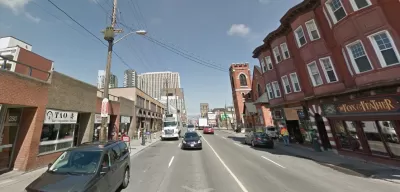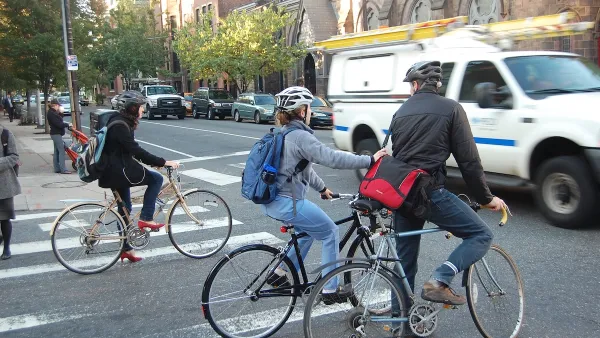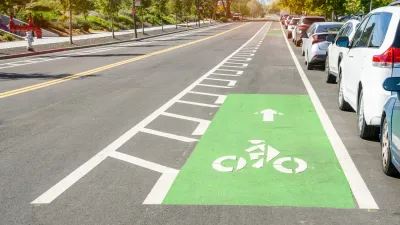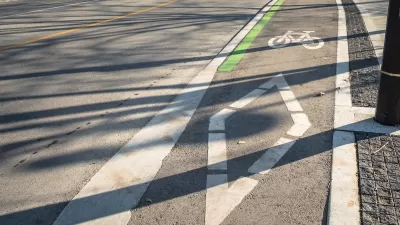The city of Ottawa's plan to make improvements to Elgin Street has elicited conflicting opinions between businesses, residents, and commuters on what should be prioritized in order to make a better street.

With large portions being no wider than four lanes (with two of those lanes being street parking) and no room to grow, Elgin Street in downtown Ottawa, Canada finds itself in a battle between the businesses who want to keep their street parking and everyone else who want a bike and pedestrian friendly street. David Reevely of the Ottawa Citizenreports that the consensus opinion of locals is a desire to see wider sidewalks, bike lanes, more street trees, and patios. Businesses on the street disagree, putting their number one priority as the street parking that lines both sides of the narrow roadway.
Reevely writes that a 1989 study by consultants of the area's parking situation found that there was an abundance of daytime parking, but evening parking, when patrons were going to restaurants and businesses, was in short supply.
The consultants kicked around the ideas of banning new restaurants and bars on Elgin because they bring people in at night beyond the area’s parking capacity, fiddling with a handful of no-parking zones to add some spots here and there, and — the big one — tearing up Jack Purcell Park for a new 150-space city garage.
The garage was probably best, the consultants concluded, even though it would cost millions and need subsidies because people will pay for parking when they’re going to work but resist it when they’re going out to enjoy themselves. I’ll say that again. People want parking but not enough to pay what it costs to provide, even when it’s scarce.
The city of Ottawa's project web site notes the functional design study for the street, following the review and evaluation of all options, is scheduled to conclude early next year.
FULL STORY: The battle for Elgin Street is heating up

Planetizen Federal Action Tracker
A weekly monitor of how Trump’s orders and actions are impacting planners and planning in America.

Maui's Vacation Rental Debate Turns Ugly
Verbal attacks, misinformation campaigns and fistfights plague a high-stakes debate to convert thousands of vacation rentals into long-term housing.

Cuomo Is the Candidate of Both NIMBYs and Developers. What Gives?
In the New York City mayoral race, odd bedfellows align to preserve the housing status quo.

San Antonio and Austin are Fusing Into one Massive Megaregion
The region spanning the two central Texas cities is growing fast, posing challenges for local infrastructure and water supplies.

Charlottesville Temporarily Has No Zoning Code
A judge ordered the Virginia city to throw out its newly revised zoning code, leaving permitting for new development in legal limbo.

In California Battle of Housing vs. Environment, Housing Just Won
A new state law significantly limits the power of CEQA, an environmental review law that served as a powerful tool for blocking new development.
Urban Design for Planners 1: Software Tools
This six-course series explores essential urban design concepts using open source software and equips planners with the tools they need to participate fully in the urban design process.
Planning for Universal Design
Learn the tools for implementing Universal Design in planning regulations.
Heyer Gruel & Associates PA
JM Goldson LLC
Custer County Colorado
City of Camden Redevelopment Agency
City of Astoria
Transportation Research & Education Center (TREC) at Portland State University
Jefferson Parish Government
Camden Redevelopment Agency
City of Claremont





























